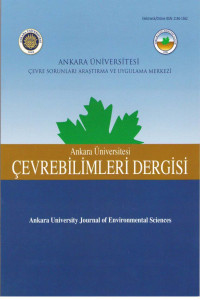Su Peyzajı Projeleri, Kültür ve Doğayı Buluşturmak İçin Peyzaj Tasarımı ve Doğal Süreçleri Nasıl Bir Araya Getirir? Boston Park Sistemleri Örneği ve Güneş Şehir
Doğanın kentsel gelişme sürecindeki dönüşümü, ekosistemin zarar görmesi ile sonuçlanmıştır. Doğal süreçleri içermek ve güçlendirmek için kurulan kentsel altyapı sonuçta bu süreçlere zarar vermiştir. Son yıllarda ekoloji ve kültür bilincine sahip tasarımcılar, insanlara doğayı ve mekanın kültürünü birarada sunan kentsel alanlar yaratmak üzere doğal süreçleri ve suyun estetik özelliklerini biraraya getirmeye çalışmaktadırlar. Bu tür projelere “su peyzajları” adı verilmiştir. Su peyzajları kamusal park ve meydanlarda inşaa edilmiş su elemanları olup; kent peyzajlarımızda suyun rolünü ortaya koyarak insanların suyun özelliklerini dokunma, görme ve ses yoluyla deneyimlemesine olanak sağlarlar. Su kaynaklarına bu şekilde yaklaşımın arkasındaki gerekçe insanların suyun güzellikleri ile ilişki kurabilecekleri sürdürülebilir ve güzel kentsel açık alanlar üretmektir
Anahtar Kelimeler:
Su peyzajı, Ketsel ekoloji, Su altyapı sistemleri
How do Waterscape Projects Combine Landscape Design and Natural Proceses to Create Dialogues that Engage both Culture and Nature? The Case of the Boston Park System and the Solar City
The transformation of nature through urban development has resulted in a disturbed ecosystem. Urban infrastructure built to contain and overpower natural processes has finally been particularly harmful. In recent years, some ecologically and culturally conscious design practitioners have tried to develop a way to combine the processes of nature and the aesthetic qualities of water in order to create urban spaces that bring people together in embracing the nature and culture of a place. These types of projects are called “waterscapes.” Waterscapes are constructed water features in urban public squares and parks: they celebrate the role of water in our urban landscapes and allow people to experience the qualities of water through touch, sight and sound. The rationale behind this way of treatment of water resources is to produce sustainable and beautiful urban spaces where people can engage with the pleasures of water
Keywords:
Waterscape, Urban ecology, Water infrastructure systems,
___
- Bachelard, G. 1982. Η ποιητική του χώρου, µετάφραση Ελένη Βέλτσου-Ιωάννα ∆. Χατζηνικολή, εκδόσεις Χατζηνικολή, Αθήνα.
- Baviskar, A. 2007. Waterscapes: The Cultural Politics of Natural Resource, Permanent Black, New Delhi.
- Beveridge, C. E., Rocheleau, P. 1998. Frederick Law Olmsted, Designing the American landscape, Universe.
- Dreiseitl, H., Grau, D., Ludwig, K.H.C. 2001. Waterscapes: Planning, Building and Designing with water, Birkhäuser, Basel.
- Dreiseitl, H., Grau, D. 2009. Recent Waterscapes: Planning, Building and Designing with water, Birkhäuser, Basel.
- France, R.L. 2002. Handbook of Water Sensitive Planning and Design (Integrative Studies in Water Management & Land Deve), CRC Press.
- Galofaro, L. 2003. El arte como aproximación al paisaje contemporáneo, Art as an approach to contemporary landscape, Land&Scaoe Series: Artscapes, GG, Editorial Gustavo Gili s.a., Barcelona.
- Herzog, T. 2008. European Charter for Solar Energy in Architecture and Urban Planning, Prestel, USA.
- Izembart, H., Le Boudec, B. 2003. Waterscapes: el tratamiento de aguas residuals mediante sistemas vegetales, G. Gilli, Barcelona.
- Kuitert, W. 2008. Transforming with water. IFLA 2008 Proceedings of the 45th World Congress of the International Federation of Landscape Architects, Blauwdruk, Techne Press, Netherlands. Leblanc, L., Coulon, J. 1993. Paysages, Le Moniteur, Paris.
- Norberg-Schulz, C. 1965. Ιntentions in Architecture. The MIT Press, Cambridge, Massachusetts, London.
- Norberg-Schulz, C. 1980.Genius Loci, Towards a phenomenology of architecture. Academy editions, London.
- Seamon, D., Mugerauer, R. 1985. Dwelling, place and environment: towards a phenomenology of person and world, Columbia University Press.
- Treib, M. 1998. Modern landscape Architecture: A critical Review. The MIT Press, Cambridge, Massachusetts, London, England.
- Zuaznabar, G. 2006. Piedra en el Paisaje. Cuadernos del Museo Oteiza 2, Fundación Museo Jorge Oteiza, Spain 2006.
- Yayın Aralığı: Yılda 2 Sayı
- Başlangıç: 2009
- Yayıncı: Ankara Üniversitesi
Sayıdaki Diğer Makaleler
Frig Vadisi Kültür Mirası Alanlarının Belirlenmesi ve Değerlendirilmesi
Fatma AŞILIOĞLU, Yalçın MEMLÜK
Doğada Yapılan Sportif Etkinliklerde Çevresel Sürdürülebilirlik
Karapınar Çevresinde Yeraltı Suyu Seviye Değisimlerinin Yaratmış Olduğu Çevre Sorunları
Burdur Gölü Havzasında Arazi Kullanım Özelliklerinden Kaynaklanan Çevre Sorunları
Hakan YİGİTBAŞIOĞLU, Abdullah UĞUR
Mehmet SOMUNCU, Nevin AKPINAR, Ekrem KURUM, Nilay Çabuk KAYA, Tanyel Özelçi ECERAL
Davras Dağı (Isparta) Vejetasyonunun Fitososyolojik ve Fitoekolojik Yönden Araştırılması
Türkiye’de Toprak ve Su Kaynaklarının Durumu, Baskılar ve Tepkiler
